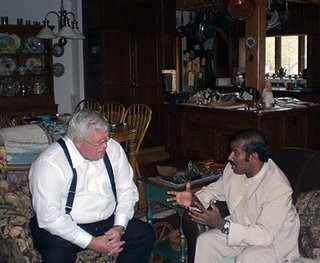The German intelligence report said US interrogators at the base had beaten a 70-year-old terrorist suspect with rifle butts and that "his injuries meant that he had to be given 20 stitches to the head wound he sustained". The report said the American interrogator responsible "appeared to be proud" of his actions.Yep, they are talking of torture, folks. Not even water boarding, but plain old fashioned beatings with rifle butts. Something that we didn't need or tolerate when defeating the Japanese and assisting the Europeans in defeating the Russians in WWII, but for some reason everything has changed and we need it now. Nice. And now, other nations are saying that they are allowed to torture because the Americans do it.
American media have heard this charge before. They've even pursued the issue, but only up to a point. I heard an NPR report yesterday on a man in Pakistan who claimed he was tortured in Guantanamo, but I've heard very little from American media regarding bases used around the world, other than they reportedly exist. Perhaps that is why Reporters Sans Frontieres rates us number 53 on their latest ranking of worldwide press freedom.
Polls in England say that the people do not support Blair's poodle humping of Bush's policies. While elsewhere, an estimated 1.6 million Iraqis have fled their country since the war began.
Israel admits to using phosphorous bombs in Lebanon. That's chemical warfare and it's illegal.
In electoral shenanigans, some voting machines in Virginia are cutting off the "long" names of candidates on the summary page. This means that Democratic Senatorial candidate Jim Webb's last name won't appear on the last screen, possibly confusing voters. It's ridiculous to get to this point in an election year and discover the "error".
